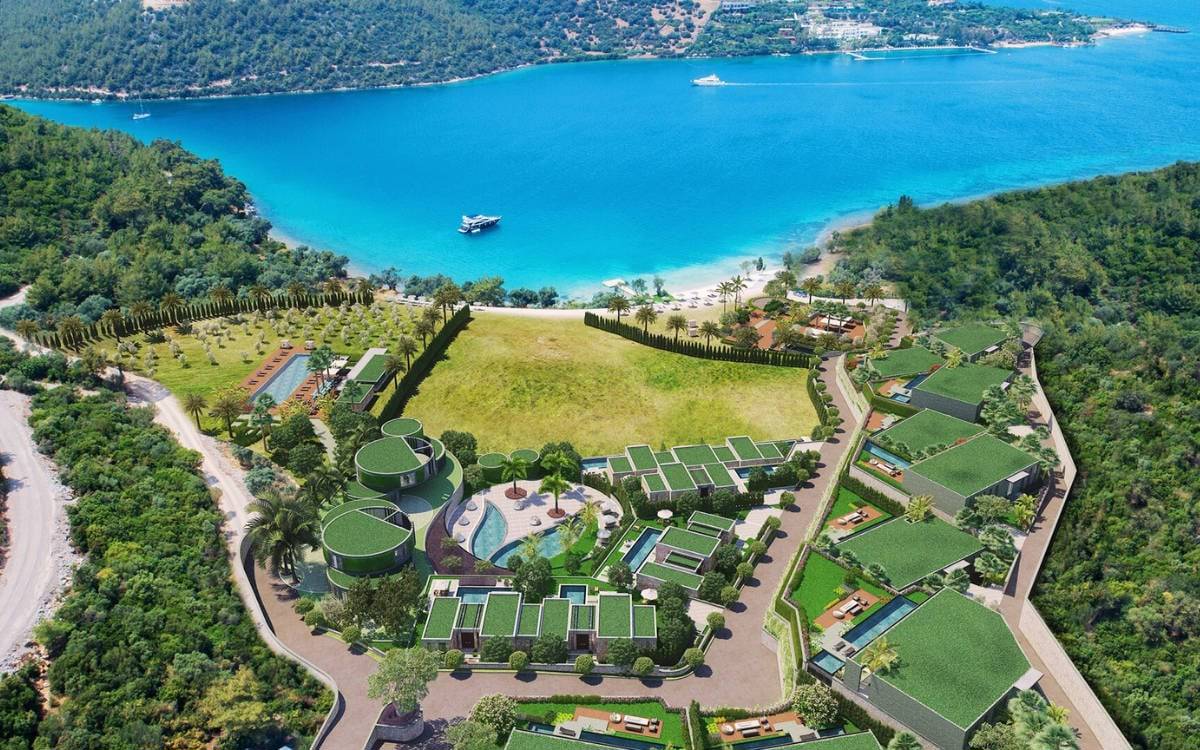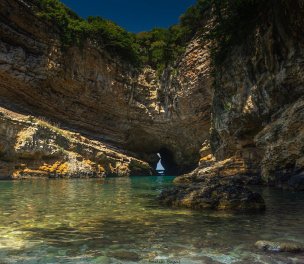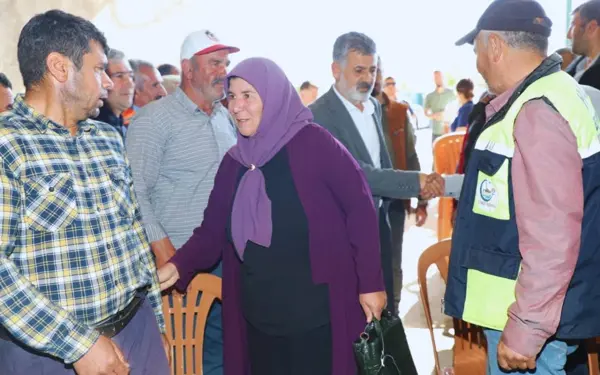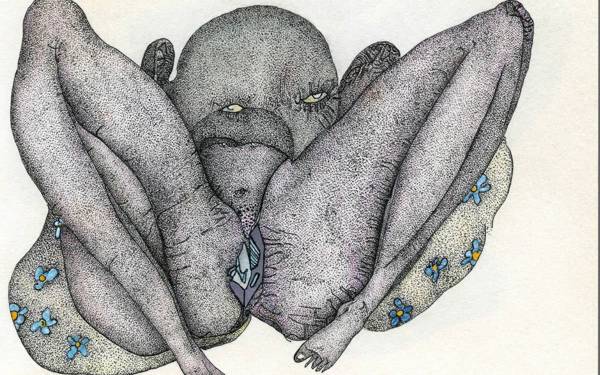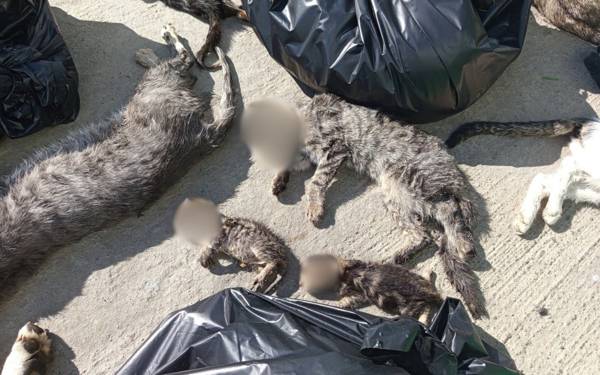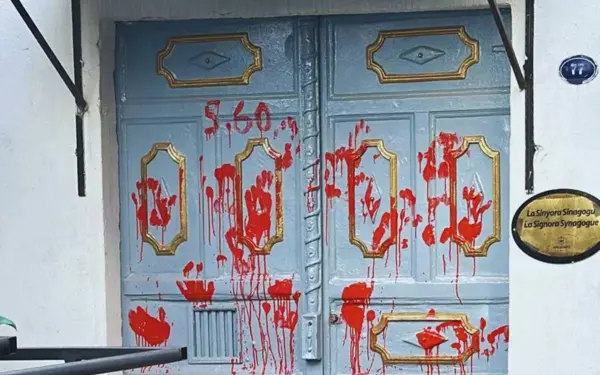The Ministry of Environment, Urbanization, and Climate Change has decided that an Environmental Impact Assessment (EIA) is not required for the expansion of Cengiz Holding’s tourism accommodation facility in the protected area of Cennet Bay, located in Bodrum, Muğla, one of Turkey’s major tourist attractions.
Cengiz Holding, known for its close ties to the government, has been involved in several environmental controversies over the years, including a stoen quarry project in İkizdere, Rize, which saw protests from locals for months, and a copper mine project in Kaz Mountains.
.jpg)
How has Cengiz Holding destroyed Turkey's forests?
Although Cengiz Construction/Holding's application for capacity expansion has brought attention to the environmental degradation in the bay, the exploitation of the area started much earlier.
Çağdaş Holding initiated the project in 2017, in Cennet Bay, which lies between Hattat Bay and Türkbükü. The project, "Cennet Bay Houses," includes 19 duplex villas with private pools and gardens, and seven single-story stone houses on approximately 30,552 square meters of land, all with "private beaches." This holding, established under the leadership of Yüksel Çağlar in 1987 in İstanbul, also includes a 24-room boutique hotel named Akana Hotels.
One of the two-story villas in the project, which has a net area of 750 square meters with six rooms and a living room, was put up for sale in March 2024 for 875 million liras (~26.5 million US dollars).
Mir Bahattin Demir, Co-Spokesperson of the Muğla Environmental Platform (MUÇEP), informed bianet about the destruction in Cennet Bay. He stated that Cengiz Holding purchased the land from the Privatization Administration in 2012 and continued their activities despite the Council of State twice canceling the privatization decision.
“Rent-seeking”
Demir emphasized that the environmental destruction in the bay was initiated by Çağdaş Holding:
"Çağdaş Holding began its activities in the bay in 2017, adding new sections to the project over time, and has now completed all its plans. With this project, they closed off the public beach to the public, declaring it their 'private beach.' A sort of collaboration was conducted, and our bay was completely occupied. The constitutional rights of the people were taken away.
"In the area they declared their 'private beach,' Mediterranean monk seals, which are an endangered species, used to nest. Despite all the illegalities, this profit-driven project could not be stopped. Archaeological remains were destroyed due to construction activities on land classified as cultural and natural heritage, SİT, and protected area. We have repeatedly asked where these findings are, but received no response from the authorities.
“The Gökburun Peninsula is one of the most important areas in Bodrum in terms of historical and cultural heritage. Archaeologists working in the area stated that there is no difference between this region and the Küdür Peninsula Natural Protected Area and that it should be preserved with the same sensitivity. However, the plunder continues. Recently, Cengiz Construction was granted approval for capacity expansion."
About Çağdaş Holding
According to information on its website, the company was founded in 1987 in Istanbul under the leadership of Yüksel Çağlar. It is known for its construction activities in İstanbul and various locations in Turkey, primarily Bodrum.
Yüksel Çağlar, the founder of the holding and a contractor from Trabzon, was detained by the Organized Crime Department on November 10, 1998. The news was reported by Milliyet Newspaper with the headline "Çağlar, the safe box of Çakıcı, detained."
Alaattin Çakıcı is a notorious figure in Turkey, who served 16 years in prison for his involvement in organized crime, before being released following a new execution regulation in 2020 dubbed as the “Bahçeli Pardon.” Çakıcı has close ties to Nationalist Movement Party (MHP) leader Devlet Bahçeli, the main ally of the ruling party.
Accused of aiding and abetting a gang established to commit crimes, Çağlar initially stated in his testimony to the State Security Court (DGM) that he had no financial relationship with Çakıcı, although they were good friends.
It was reported that he had hired a lawyer for Çakıcı, who was imprisoned in France at the time, with $1 million support to help him get released. The press also highlighted that Çağlar's relationship with Çakıcı would be examined in various aspects, and his connection to the Nesim Malki murder would be investigated.
Following Çakıcı's capture in Nice, France, on August 17, 1998, Çağlar visited him and later told Milliyet Newspaper:
"I met Çakıcı in 1983 and saw him again in court in France seven years later. We talked on the phone once, and that was it. It is true that Çakıcı made a money sign with his hand in court. When he was caught, he had $17,000 on him, which they took according to French law. He is diabetic and had no money on him. I left 10,000 French francs for him. As a fellow countryman, I am proud to extend a helping hand to him. Çakıcı doesn't need my money. He asked for money because I was the first person he saw in court."
Çağlar was also implicated in three shooting incidents. He was accused of ordering the shootings of construction materials seller Mehmet Aydınoğlu on November 23, 1994, Gençler Construction owner Sinan Dayıoğlu on January 19, 1997, and the brother of film actress Melek Görgün, Sait Görgün, on April 7, 1997, over delays in vacating properties he purchased. The cases against him were dropped due to a lack of evidence. (TY/VK)






